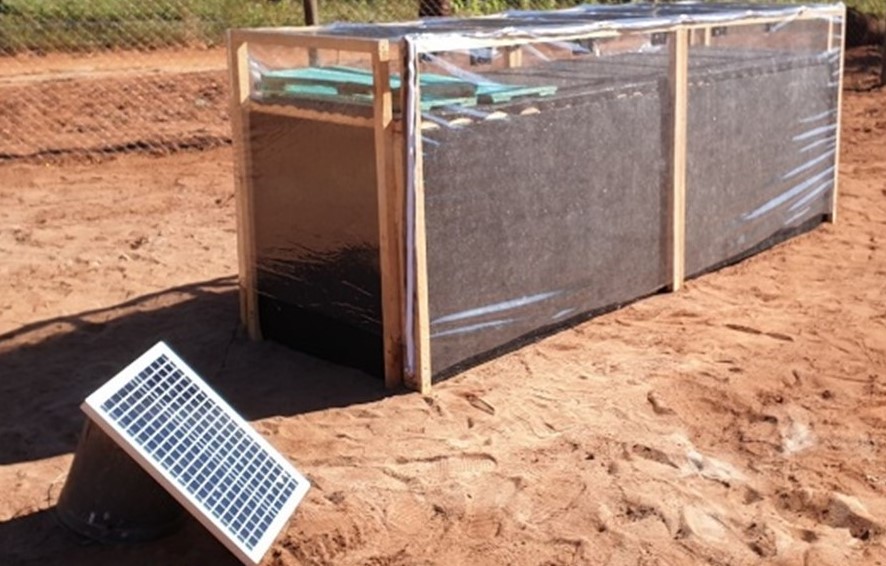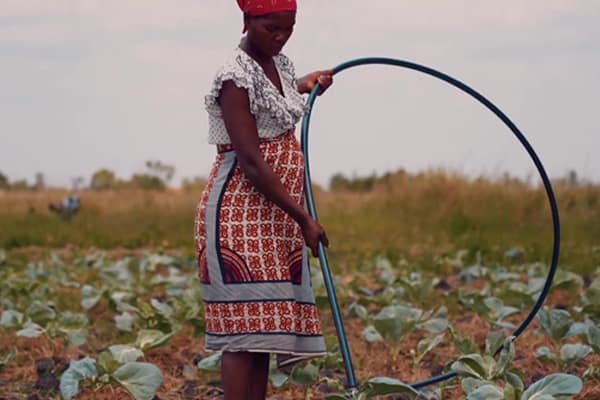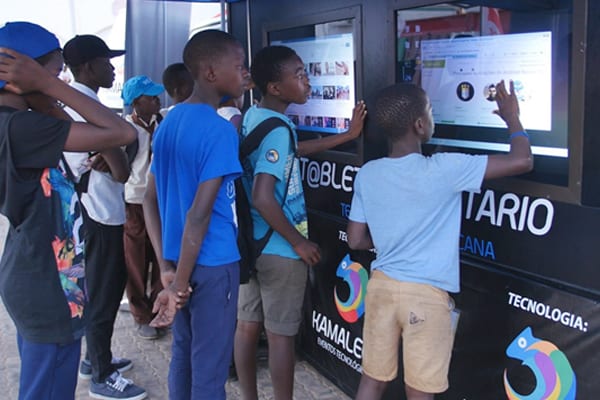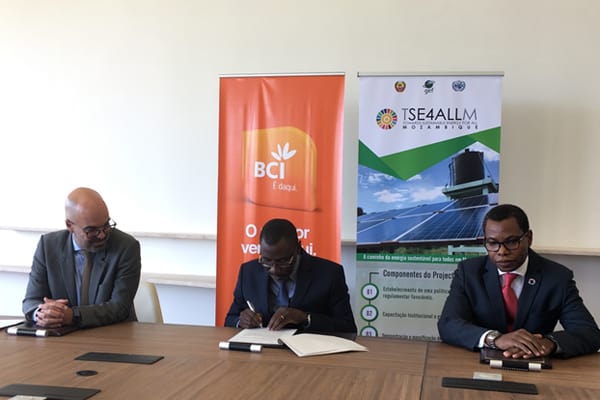
 ‘’We set up the water pump, we follow the sun, align the panel, the water comes out and we start irrigating,” explains Ines Maria Paulo, a smallholder farmer and President of the Wanga Udje Farmers' Club, as she demonstrates how to use a solar irrigation pump.
‘’We set up the water pump, we follow the sun, align the panel, the water comes out and we start irrigating,” explains Ines Maria Paulo, a smallholder farmer and President of the Wanga Udje Farmers' Club, as she demonstrates how to use a solar irrigation pump.
 UNIDO through the “Towards Sustainable Energy for All in Mozambique” project’s capacity building component seeks to improve and develop the capabilities and knowledge of market players and enablers in the Renewable Energy sector.
UNIDO through the “Towards Sustainable Energy for All in Mozambique” project’s capacity building component seeks to improve and develop the capabilities and knowledge of market players and enablers in the Renewable Energy sector.
 Although agriculture and small or medium-sized enterprises are important to the Mozambican economy, there is enough evidence that it is not possible to process local raw materials, diversify the economy, or increase the competitiveness without access to modern environmentally adequate energy at an affordable cost.
Although agriculture and small or medium-sized enterprises are important to the Mozambican economy, there is enough evidence that it is not possible to process local raw materials, diversify the economy, or increase the competitiveness without access to modern environmentally adequate energy at an affordable cost.

